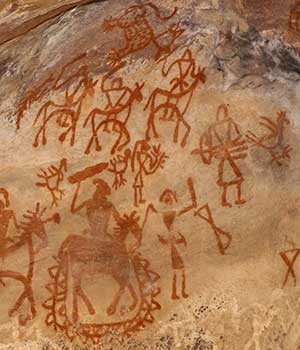The First Buddhist Precept — to resolve not to kill — sounds deceptively simple, and yet it can be a lifelong koan.

Continued mass shootings and other ghastly events in recent history inspire reflection upon the First Grave Precept (I resolve not to kill, but to cherish all life). While this may sound like the easiest of all precepts to follow, it may actually be the most difficult, and it tests whether we practice Buddhism as a hobby or a religion.
Roshi Kapleau explains in To Cherish All Life that ahimsa (harmlessness) has a religious rather than a moral or metaphysical basis because it is grounded in our Buddha-nature. “It is in this Buddha-nature that all existences, animate and inanimate, are unified and harmonized” (emphasis added). Thus, to willfully take life “means to disrupt and destroy this inherent wholeness and to blunt feelings of reverence and compassion arising from our Buddha-mind.”
It is clear that, in Roshi’s view, the First Precept covers not only human and non-human animals, plants, and viruses, but also “the Earth where we stand” and the universe as a whole. Existence is the focus, not a particular arrangement of molecules. This view exceeds even the custom of some Buddhists to avoid stepping on small insects and the Jains’ refusal to kill microorganisms, which leads to the practice of filtering water to save the tiniest beings. To what extent are we willing to engage in ahimsa in our modern, harried lives? How can we fully respect the inherent wholeness of all existence? I see strict adherence to the First Precept as a figurative call to arms that requires understanding, commitment, dedication, and courage.
A scrupulous adherence to non-violence is not the exclusive province of Jains and some Buddhists. Before the U.S. had a standing army, Quakers opposed the use of arms not just for militia service, but for any violent purpose whatsoever. Quaker frontiersmen were forbidden to use arms to defend their families, even though “[i]n such circumstances the temptation to seize a hunting rifle or knife in self-defense… must sometimes have been almost overwhelming.” [E.g., P. Brock, Pacifism in the United States, 359 (1968). ] This spirit of self-sacrifice is taken to an extreme in the famous story where the Buddha offers his life to a tigress so that her cubs may survive. Parallel to Roshi Kapleau’s exposition, the Torah teaches that only when there is a true state of “wholeness,” meaning that everything is “complete,” does true peace reign. The directly-related Arabic greeting Salaam encapsulates the same idea.
The self-immolation of Buddhist monks in Vietnam in 1963 is another example of this extreme dedication, expressing a willingness to accept rather than inflict suffering. It appears that, at least in Mahayana Buddhism, the objective is to minimize suffering in a world where much suffering is inevitable. The Vietnamese Buddhist monks taught us, however, that violence may befall us whenever we oppose violence. The killing of students at Kent State University demonstrating against the war in 1970 reflected that reality. Are we willing to face white supremacists and neo-Nazis in our streets? Can we muster the courage to express dissenting points of view under threat of losing a job?
I never saw Roshi Kapleau watching for small insects when we walked together during his time in Hollywood, or filter his water to avoid killing microorganisms. I do remember that he reluctantly accepted the need to fumigate the house where he had retired, which contained a zendo. (Tropical cockroaches can be quite disturbing when one is perched on a zabuton.) But his middle way accorded with the mainstream Buddhist principle that we are responsible for Mother Earth and must protect the environment as part of our ahimsa practice, as far as is practicable.

Not killing in general, and protecting the environment in particular, are clearly worthy goals. How can we achieve them? Roshi Kapleau writes that deliberately taking life by shooting, strangling, knifing, drowning, crushing, poisoning, burning, or electrocuting another human or non-human animal, or by purposefully inflicting pain on them, are not the only ways to violate the First Precept. To cause another to commit these acts is also a violation. Therefore, Roshi writes, to eat an animal makes one an accessory after the fact to its slaughter, although different considerations determine the degree of culpability for taking life, according to Mahayana Buddhist teaching. Do we practice ahimsa when we abide the acts of others who commit the unskillful acts?
If we didn’t eat animals, they wouldn’t be killed or tortured. If we didn’t consume eggs and dairy products, chickens and cows wouldn’t suffer from overcrowding, imprisonment, and other abuses. To avoid that is relatively easy, although indoctrination by the meat, poultry and dairy industries may make it seem like we can’t live or enjoy good health without their products. It may be that some people require them, but probably not too many.
It is a fact that organic life in our planet evolved in such a way that all living things must eat other living things. We cannot perform photosynthesis. We could subsist on plants and those life forms which are neither plant nor animal: fungi and cyanobacteria such as blue-green algae that can be considered a complete food. Even plants, however, have been found lately to behave in some ways as sentient beings. How many would be willing to subsist on manufactured Soylent-type foods made from Protista and Monera? Still, these would be living organisms, and consuming them would offend the Jains as well as violating the strict version of ahimsa. Besides changing our eating and consumption habits in order to protect animals and the environment, are we willing to stop wearing leather shoes and belts?
But even where it’s clear that killing is taking or has taken place and we have not cherished even human life, all so-called religions of peace (the Abrahamic religions) and yes, Buddhism, have descended to hellish levels. “You don’t normally associate Buddhism with violence, but time and again we hear that it is Buddhist monks who are leading the attacks against the churches [in Sri Lanka]. And our partners have found the monks are being aided by pro-Buddhist authorities,” said Paul Robinson, chief executive at Release International, “a ministry that exposes persecution of Christians,” in a 2016 interview.

Isn’t it complicity to remain silent in the face of these atrocities committed in the name of Buddhism? Doesn’t our silence or inaction contribute to the impunity of the military leaders of Myanmar? Shouldn’t we somehow join those who are protesting? Does the wholeness recede with the cultural and geographical distances?
Less than a century ago, Zen priests and other religious Japanese officials enabled and justified the brutality of the empire’s conduct during World War II. In his 1997 book Zen at War, Brian Daizen Victoria offers a “compelling history of the contradictory, often militaristic, role of Zen Buddhism…, meticulously document[ing] the close and previously unknown support of a supposedly peaceful religion for Japanese militarism throughout World War II. Drawing on the writings and speeches of leading Zen masters and scholars, Brian Victoria shows that Zen served as a powerful foundation for the fanatical and suicidal spirit displayed by the imperial Japanese military.” [Zen at War book review] The author also shows how Zen was used to justify racism, fascism, and genocide. Zen masters contributing to the justifications include some in our own lineage. This shows how tempting it is, even for otherwise enlightened leaders, to be sucked in by prevailing notions of racial or national superiority. Doesn’t that ring a bell with respect to MAGA, the myth of American exceptionalism, Manifest Destiny, and their many ramifications in foreign policy, which were and are justified by religious leaders quoting scripture?
So it is legitimate to ask, why do religions always find ways to justify violence despite preaching love and peace? Alan Strathern of Oxford University put it this way:
[H]owever any religion starts out, sooner or later it enters into a Faustian pact with state power… The result can seem ironic. If you have a strong sense of the overriding moral superiority of your worldview, then the need to protect and advance it can seem the most important duty of all… Christian crusaders, Islamist militants, or the leaders of “freedom-loving nations,” all justify what they see as necessary violence in the name of a higher good. Buddhist rulers and monks have been no exception. [Why are Buddhist monks attacking Muslims? BBC News, 02 May 2013]
No wonder that “Buddhist monks have looked to kings, the ultimate wielders of violence, for the support, patronage and order that only they could provide. Kings looked to monks to provide the popular legitimacy that only such a high moral vision can confer.” [Why are Buddhist monks attacking Muslims? BBC News, 02 May 2013]
When we tolerate the existence of laws that allow the purchase and possession of weapons of war, designed for mass killings, are we not engaged in an implicit Faustian pact with state power? When we stay silent regarding the genocide perpetrated by other so-called Buddhists, aren’t we disrupting and destroying the inherent wholeness and blunting feelings of reverence and compassion arising from our Buddha-mind? When we tacitly accept that American lives are worth more than others, and justify as “collateral damage” the murder of innocents by remotely-controlled drones, where is our commitment to ahimsa?
Viewed in historical context, the ethnic cleansing of Native American tribes, the more recent, recurring massacres in our country, the Buddhist-on-Muslim violence in Sri Lanka, the ongoing genocide in Myanmar, and innumerable insults on the environment inflicted by the current administration, among other things, make it incumbent upon us to look into the deep meaning of the First Precept and its relation to the Three Treasures. To “resolve, with all beings, to understand the Great Way whereby the Buddha seed may forever thrive” implies that we should see how our actions or inaction tend to reduce or increase suffering on “this Earth where we stand” and to defend the Earth itself. To “resolve, with all beings, to enter deeply into the sutra treasure whereby our wisdom may grow as vast as the ocean” demands that we try to better understand the infinite network of connections that make up this world and affect the lives of all sentient beings. To “resolve to live in harmony” with all these sentient beings by taking refuge in Sangha suggests that collective measures are necessary. These notions conjure one word that may be repellent to some: politics.
I understand that the mission of the Rochester Zen Center and other Buddhist organizations does not include advocating for political causes, nor do I suggest that it should. Each Sangha member can look for ways of participating in the political process if so inclined. To those who say “I’m not interested in politics,” I say politics is interested in you, and you are involved in it whether you want to be or not. If you have a child in school, or just care for children, as you surely do, then you may want to do something to help prevent another tragedy like the ones at Columbine, Sandy Hook and Parkland. And you may want to do something to help stop the genocide in Myanmar, which is giving Buddhism a bad name, although that should be the least of our concerns. As Robert Aiken Roshi concluded as far back as 1984 in his book The Mind of Clover, Essays in Zen Buddhist Ethics, “We have reached the place in international affairs, and in local affairs too, where it is altogether absurd to insist, as some of my Buddhist friends still do, that the religious person does not get involved in politics.” Remember the famous dictum, “All that is necessary for the triumph of evil is that good [people] do nothing,” often attributed to the conservative philosopher Edmund Burke, who wrote much about the importance of religion in moral life.
How to engage in this challenging task is up to each of us. I personally don’t know if I can “not kill.” But I hear a figurative call to take up pacifist arms: do good, avoid evil, liberate all sentient beings. / / /
